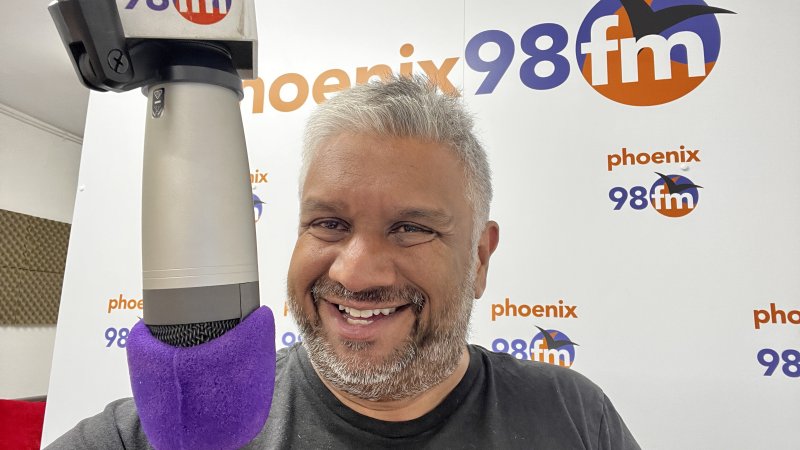
The education industry is incredibly important yet it is one that receives little positive attention compared to others. Critics are often keen to focus on the shortcomings as opposed to where things are pushing forward to create a good environment for current and future lookers. Luckily, there are also plenty of commentators who are working to further the education industry and ensure that it is one where the focus is kept on improvements. Let’s take a look at some of the major game-changers at work here.
John Hunter
In addition to being a teacher himself, John Hunter has been a passionate advocate and activist for education for a long time. He has always been on the hunt for ways to bring harmony into his own life. Through the study of philosophies and religion while travelling in countries such as China, Japan, and India, he has developed his own thoughts about the role and placement of a teacher in a peaceful society.
He uses many techniques to engage with students, but one of his most well-known is through games. Using games to teach is a brilliant tactic that can be used to further the understanding of students at many different levels. Hunter created the World Peace Game, and it has since spread around the world.
This is a political simulation played across a four-tiered board. It can be used to teach children the importance of connectivity amongst the global community. The ultimate aim to create a system of world peace while resorting to as little military intervention as possible. With children of all ages able to interact with the game, it means that many are going to be able to learn critical skills about communication and cooperation from young ages – something that will only be beneficial as they age.
With many platforms and a TED talk to view from Hunter, it is easy to discover what his dreams for humanity might look like in the future.
Bill Gates
It is rare to find a cause that Bill Gates is not invested in to some capacity. The Bill and Melinda Gates Foundation has helped thousands around the world, and their educational focus is just one of many. In addition to developing software and technology that has helped out many schools around the world, Gates has also been vocal about educational reforms in the US.
In past years, there have been some moves by some states to cut education funds to put the money elsewhere. This is usually met with resistance, and there are calls for other paths to be taken. In such conversations, you will often find Gates and his wider organisation.
He is a firm supporter of additional funds being given to teachers, and for them to be distributed properly so teachers are able to give the tailored support they need to be able to do their jobs effectively. With ongoing training, teachers should be able to develop their skills to be able to meet their goals and the needs of the wider classes.
However, some of Gates’ views have proved to be slightly controversial – particularly in regards to his thoughts on class sizes. Many experts think that smaller class sizes are better as it allows for more one-on-one interaction between the teacher and each individual student. However, Gates believes that the most capable teachers should be able to take on more pupils and still deliver the same results. Despite some views such as this, there is no denying the influence he could have upon the education system. Keeping up to date with the latest information from the Bill and Melinda Gates Foundation helps us to learn more about what they are doing to further education support around the world.
Al Kingsley
One voice that is standing out in the UK is that of Al Kingsley. He has been working hard to ensure that the children of Britain have access to technology that can help them to learn and understand their lessons to an even greater extent.
His knowledge comes from an impressive 30 years in the technology sector, working across multiple areas. One of his special areas of focus for a long time has been the use of technology as an educational tool. The main purposes of this are not just to offer a chance for children to learn. Built into the technology itself are safeguards and other features that could potentially help to protect a vulnerable child if they need it. The online world can be a scary place, but the work of Kingsley and other forward-thinking minds means that parents and teachers alike can teach children about the dangers of the internet and how to navigate it safely.
In addition to this, Kingsley is also committed to helping education at ground level. In addition to his work as the MD of the software company NetSupport, he serves as the chair of two multi-academy trusts in the UK and has worked on the RSC Head Teachers board. He has spent 15 years providing support for schools and pupils through edtech, and following his social media and publications will give some insight into where his next visions for the industry are.
David Coleman
So much emphasis is placed on improving education for younger children. However, by only improving the understanding of those who are immediately entering the school systems, we run the risk of alienating the older generations who might be nearing a leaving age instead.
Coleman is a key voice in the US who is advocating for change and support for older students of high school age. He has helped to bring to life the Common Core Standards Initiative. This is an incredibly important new teaching structure that should help to prepare students either for further education or for entering working life. It will be implemented at every level from kindergarten to the 12th grade, and has been accepted by 45 out of 50 states.
It seeks to further the core skills that every student needs to have. Every pupil must have a grasp of the English language and mathematics. In modern-day America, having a lack of either can mean that someone will not be able to find a job of a high enough calibre to fully support themselves. Introducing the Common Core Standards should hopefully help to develop the critical thinking and problem-solving skills of many across the US.
Yet More Voices
These are just some of the voices that are fighting for better education around the world. It is clear that there are many techniques that are not working at the moment. Key skills like first language development and mathematics are dropping off rapidly and this will have a knock-on effect on the next generation of the workforce. The above voices are just some of those who are fighting to avoid such a negative effect.
With their help, and the willingness of governments to listen and support them, the industry will hopefully be able to adopt the changes that it needs to make. Though we are far from a perfect education system around the world, there are many small changes being made that will hopefully be able to move the industry forward positively.


























